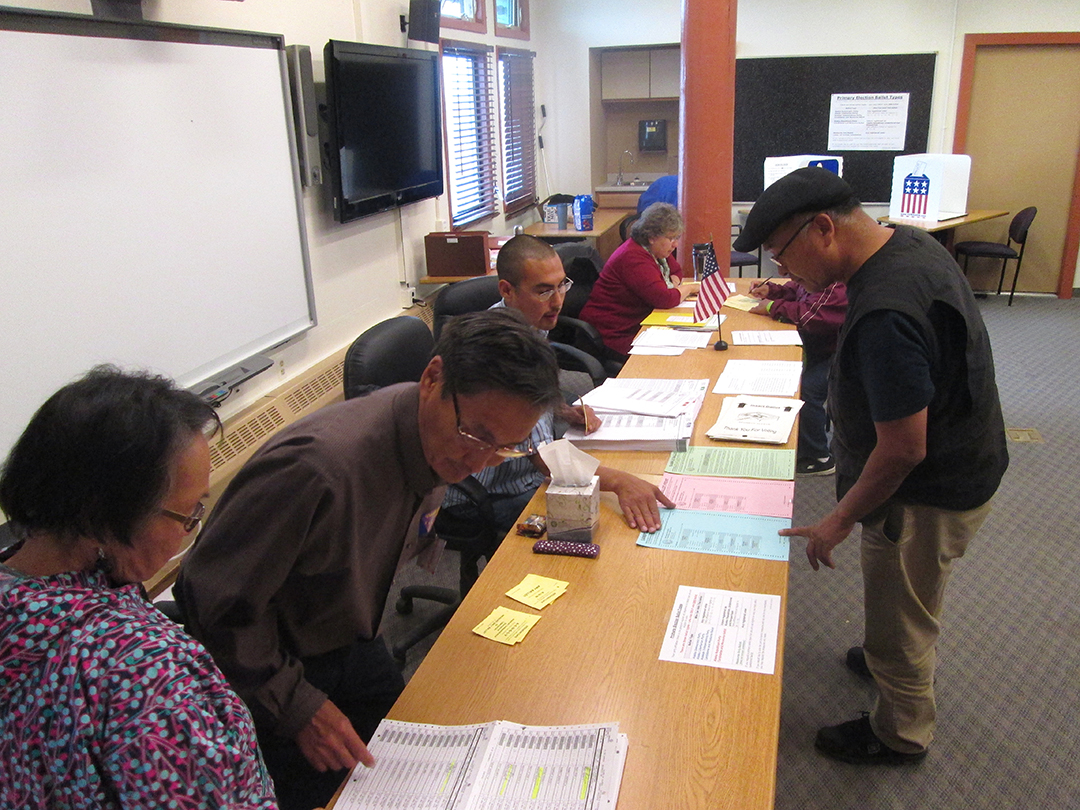
A federal district court judge has sided with plaintiffs who say the state is not doing enough to help non-English-speaking voters.
A “partial decision” Wednesday in a case against the state division of elections is aimed at protecting the voting rights of Alaska Natives.
In Toyukuk v. Treadwell, plaintiffs argued that translation of state of Alaska ballot language from English into Yupik is not adequate to ensure voters’ understanding of the ballot.
Four tribal councils filed the suit against the state division of elections last year, alleging the state violated the Voting Rights Act and the U.S. Constitution by not providing language assistance to Yup’ik and Gwich’in speaking voters in three census areas.
State attorneys argued that because the languages are historically unwritten the Voting Rights Act requires only oral language assistance in these languages. The division of elections said it provides translators and bilingual poll workers.
In a hearing Wednesday before a federal judge in Anchorage, Native American Rights Fund attorney Natalie Landreth argued for the plaintiffs.
“But the federal court held this morning that [the state was] not providing even oral language assistance,” Landreth said. “Because they don’t ask or pay their outreach workers in the villages or bilingual poll workers to translate any of the information in the official election pamphlet. That was part of her holding today.”
Landreth says, plaintiffs want written information translated. Under the current system, Yup’ik speaking voters do not get a written election pamphlet in advance of the election.
“If you’re a Yup’ik speaking voter, the translated information you receive consists of three things: here’s the day of the election, here’s the time of the election, here’s where it will be. And then there will be language assistance available at the polling place,” Landreth said. “There’s no advance information about the candidates, no advance information about bond measures, nothing about constitutional questions, nothing about ballot measures.”
“To such a degree that the plaintiffs and other witnesses testified that the first time they find out about ballot measures is often when they go to vote on election day.”
Federal district court judge Sharon Gleason sided with plaintiffs. In a partial decision Wednesday, which addresses only the Voting Rights Act claims, Gleason said the division of elections has violated the Act by not providing substantially equivalent language assistance in Yup’ik and Gwich’in in the three census areas.
The court has given the state until Friday, Sept. 5 to provide a proposal for additional language assistance measures that could be implemented in time for the November election. Alaska assistant attorney general Corey Mills says time is running out.
“And the court also recognized the difficulty that the division of elections has in providing this type of assistance,” Landreth said. “So the state and the division of elections and the department of law are looking at that and what that proposal will entail.”
The court did acknowledge the state’s efforts so far in providing ballot translations for Yup’ik and Gwich’in speakers, saying the state has been working diligently this year in providing language assistance.
